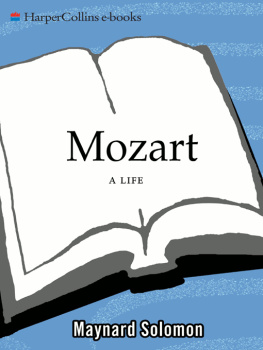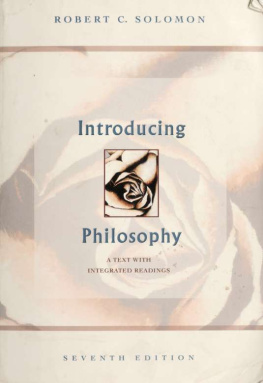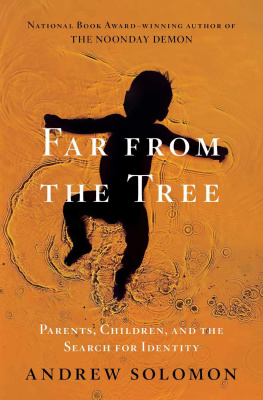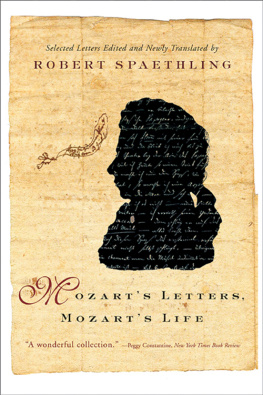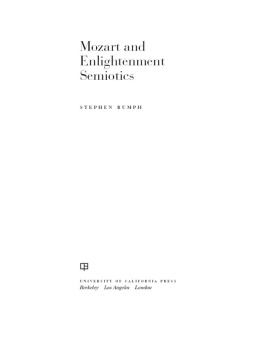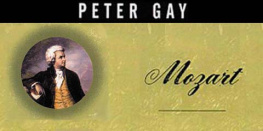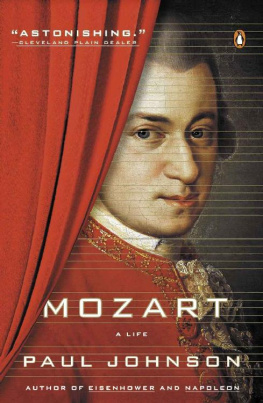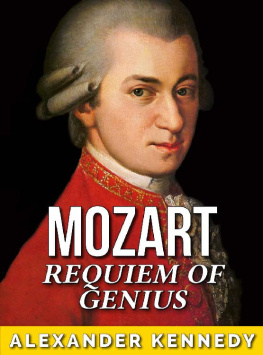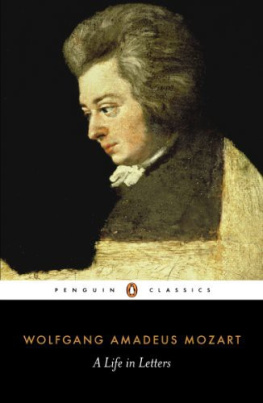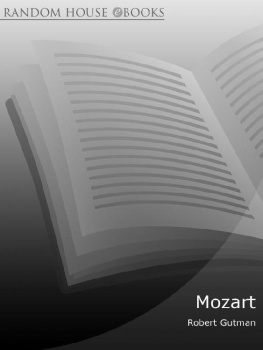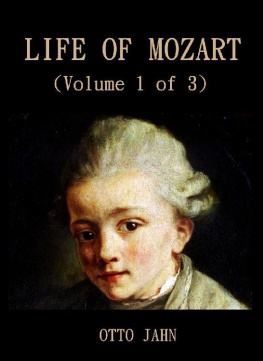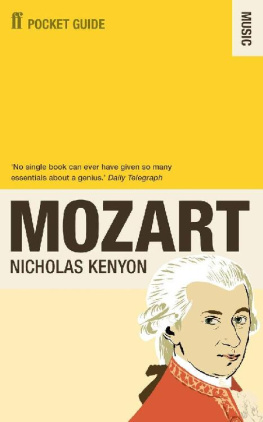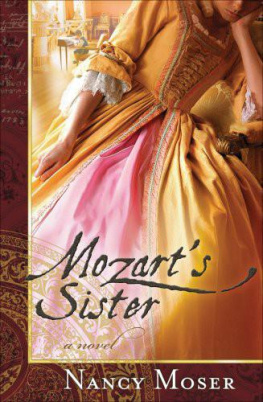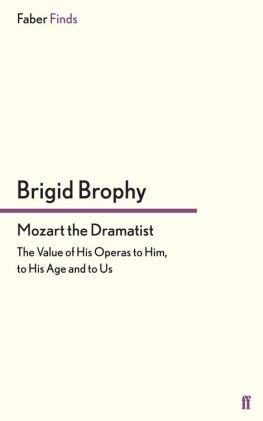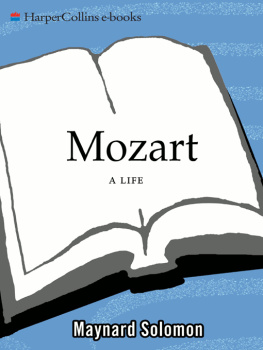Solomon - Mozart: a life
Here you can read online Solomon - Mozart: a life full text of the book (entire story) in english for free. Download pdf and epub, get meaning, cover and reviews about this ebook. year: 2014, publisher: HarperCollins e-Books, genre: Detective and thriller. Description of the work, (preface) as well as reviews are available. Best literature library LitArk.com created for fans of good reading and offers a wide selection of genres:
Romance novel
Science fiction
Adventure
Detective
Science
History
Home and family
Prose
Art
Politics
Computer
Non-fiction
Religion
Business
Children
Humor
Choose a favorite category and find really read worthwhile books. Enjoy immersion in the world of imagination, feel the emotions of the characters or learn something new for yourself, make an fascinating discovery.
- Book:Mozart: a life
- Author:
- Publisher:HarperCollins e-Books
- Genre:
- Year:2014
- Rating:3 / 5
- Favourites:Add to favourites
- Your mark:
- 60
- 1
- 2
- 3
- 4
- 5
Mozart: a life: summary, description and annotation
We offer to read an annotation, description, summary or preface (depends on what the author of the book "Mozart: a life" wrote himself). If you haven't found the necessary information about the book — write in the comments, we will try to find it.
Mozart: a life — read online for free the complete book (whole text) full work
Below is the text of the book, divided by pages. System saving the place of the last page read, allows you to conveniently read the book "Mozart: a life" online for free, without having to search again every time where you left off. Put a bookmark, and you can go to the page where you finished reading at any time.
Font size:
Interval:
Bookmark:
For Eva, Nathaniel, and Alexander, with love,
Joseph Kerman, in friendship,
and
Marianne Goldberger, with deep regard
Consider well. He is a Prince!
More! He is a Man!
Die Zauberflte
Portions of this book formed the basis for the Messenger Lectures that I gave at Cornell University in the spring of 1992. Other sections were presented as lectures at Brandeis University, the University of California at Berkeley, Peabody Conservatory of Music, Princeton University, Rutgers University, Smith College, Stanford University, the Woodrow Wilson International Center, the Biography Seminar of the Department of English at New York University, the New York Institute for the Humanities, the Muriel Gardiner Program in Psychoanalysis and the Humanities at Yale University, and the Royal Musical Association in London. The Myth of the Eternal Child was initially presented as an Albert Schweitzer Lecture in the Humanities at New York University at the invitation of Aileen Ward, now Schweitzer Professor Emeritus, and was subsequently published in 19th-century Music 15 (1991). Chapter 18, here entitled Adam, appeared in the Festschrift for Georg Knepler, Zwischen Aufklrung and Kulturindustrie, ed. Hanns-Werner Heister et al. (Hamburg, 1993). A version of chapter 28, The Journey to Berlin, appeared in the Journal of Musicology (1994). Chapter 22, The Zoroastran Riddles, was written for a Mozart symposium at Rutgers University organized by Ellen Rosand and Douglas Johnson; it was published in American Imago 12 (1985) and is reprinted here, in revised form, by permission of Johns Hopkins University Press.
My thanks to the unfailingly helpful staff members of the music division of the New York Public Library, the libraries of Columbia, Harvard, and Princeton universities, and the sterreichische Nationalbibliothek. Also to the Berlin Staatsbibliothek Preussischer Kulturbesitz, the British Library, the Graphische Sammlung Albertina in Vienna, the Hunterian Art Gallery of the University of Glasgow, the Pierpont Morgan Library, the Museen der Stadt Wien, and the Mozart-Archiv of the Internationale Stiftung Mozarteum in Salzburg. Quotations from Emily Anderson, The Letters of Mozart and His Family , are used by permission of Macmillan Press Ltd. Photographs are by Maury Solomon. The reductions of the music examples were done by Scott Griffin and prepared for publication by Carl Johnson of Music Publishing Services, New York.
For materials, suggestions, collegial responses to queries, and exchanges of ideas, I am grateful to Wye Jamison Allanbrook, Rudolph Angermller, Karol Berger, Bruce Cooper Clarke, Cliff Eisen, Joseph Kerman, William Kinderman, Richard Kramer, Lewis Lockwood, Robert L. Marshall, Josef Manal, Max Rudolf, the late Gert Schiff, Elaine Sisman, Leo Treitler, Alan Tyson, James Webster, Robert S. Winter, and Neal Zaslaw. I owe a great deal to the members of my Mozart seminars at the State University of New York at Stony Brook, Columbia University, and Harvard University, where many of the chief ideas of this book were first elaborated. Professors Eisen, Kerman, Lockwood, Marshall, and Zaslaw all read the manuscript and made innumerable valuable suggestions for its improvement, sacrificing time from their own projects to assist a friend and colleague who now cannot find appropriate words to express his deep appreciation. I can only say that wherever possible I have gladly availed myself of their corrections, accepted their advice, and taken serious account of their objections. Perhaps a future edition will enable me to remedy any remaining errors of fact or infelicities of interpretation.
I am indebted to Aaron Asher for his enthusiasm for this project and for reading the manuscript with a keen musicians eye and an editors tact; to my agent, Georges Borchardt, for his patience and sound advice; and to executive editor Hugh Van Dusen of HarperCollins, who deftly guided the book through its final stages with the able cooperation of Stephanie Gunning, Pamela LaBarbiera, Maureen Clark, and Elyse Dubin. Katherine Scott was the resourceful copy editor.
As always, my wife Eva has been my best critic, editor, and endlessly patient listener. My old teacher Harry Slochower died before he could see this book, but I hope that I have managed to remain faithful to his warning that all absolutist explanations are bound to fail.
New York, 1994
1 florin [or gulden] = 60 kreuzer
1 ducat = 4 1/2 florins
1 Reichsthaler = 1 1/2 florins
1 friedrich dor = 7 to 8 florins
1 sequin = 2.8 florins
1 English shillings = 1 florin
1 English pound ="10" florins
1 louis dor = 9 to 10 florins
Rates vary somewhat owing to currency fluctuations.
Mozarts compositions are identified by the numbers assigned to them in the first edition of the chronological thematic list of his works by Ludwig von Kchel, followed by the revised numbers (if any) assigned to them in the sixth edition of Kchels catalog (thus, Sonata in A minor, K. 310/300d). This procedure is followed as well for works that formerly were listed in an appendix ( Anhang ) to the first three editions of Kchel but now appear in the main catalog (thus, Les Petits Riens , K. Anh. 10/299b). K. deest designates a work that is not to be found in Kchel.
Browsing in the stacks of a major university library, I come upon a two-volume guidebook to Salzburg and environs, published in 1792 and 1793, shortly after Mozarts death. It was written by Lorenz Hbner (17531807), a Munich editor who was called to Salzburg in 1783 by Archbishop Hieronymus Colloredo to run the citys main newspapers, the Staats-Zeitung and the Salzburger Intelligenzblatt , which he did until his departure from Salzburg in 1799. Hbner was on cordial terms with Leopold Mozart and was fully aware of Mozarts genius, his fame, and his stature as Salzburgs greatest son.
I leaf through Hbners chapters on Salzburgs cultural life, its musical establishment and public institutions, churches, leading living citizens. I study the statistics on population, births and deaths, shops and industries, land ownership and agricultural output. And then, out of curiosity, and perhaps hoping to locate a previously overlooked reference to Mozart, I turn to the street listings, specifically to the two pages devoted to the Getreidegasse, where Mozart was born in 1756, where the Mozarts lived for the quarter century from 1747 to 1773, and where his birth house still stands.
Now somewhat puzzled, but having formed a working hypothesis, I turn to Otto Erich Deutschs comprehensive Mozart: A Documentary Biography and its supplements, including Cliff Eisens recent New Mozart Documents , in search of references to Mozart in Salzburg during his Vienna years and after his death. It is not long before my vague surmises are confirmed by an array of facts and, more poignantly, by the absence of other, expected facts.
Apparently, a makeshift curtain of silence had begun to descend in, Salzburg well before Mozarts death, beginning in the wake of his flight to Vienna in 1781, and intensifying as the years wore on. From the time of his defection until his death, there is only one recorded mention of his name in any Salzburg newspaper, a passing reference in the course of a review of an edition of a Dittersdorf opera. They did, however, learn of his death: on 12 December 1791, an eleven-line obituary that had appeared in the Wiener Zeitung on December 7 was reprinted on the front page of Hbners Staats-Zeitung .
During the night of the 4th and 5th of this month Imperial Court Chamber Composer Wolfgang Mozart died here. Known from his childhood on as the possessor of the finest musical talent in all Europe , through the fortunate development of his exceptional natural gifts and through persistent application he rose to the level of the greatest masters; his works, loved and admired by all, bear witness to this, and are the measure of the irreplaceable loss that the noble art of music has suffered by his death.
Font size:
Interval:
Bookmark:
Similar books «Mozart: a life»
Look at similar books to Mozart: a life. We have selected literature similar in name and meaning in the hope of providing readers with more options to find new, interesting, not yet read works.
Discussion, reviews of the book Mozart: a life and just readers' own opinions. Leave your comments, write what you think about the work, its meaning or the main characters. Specify what exactly you liked and what you didn't like, and why you think so.

